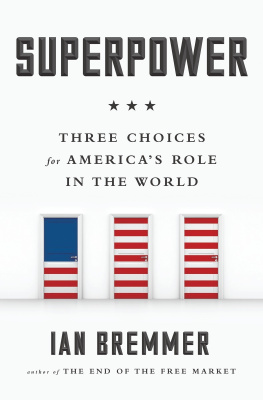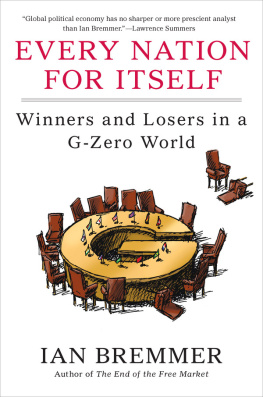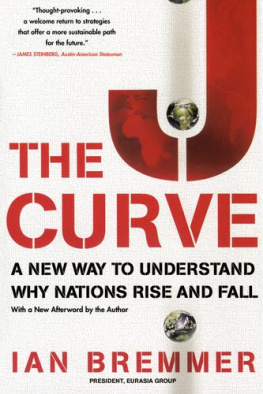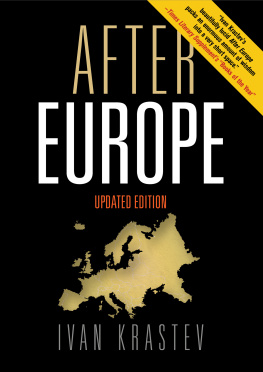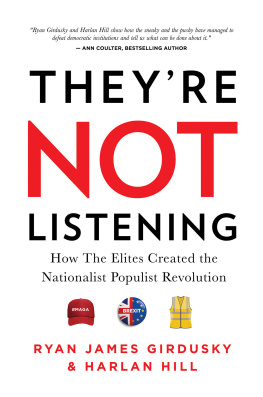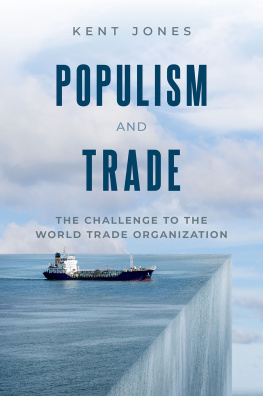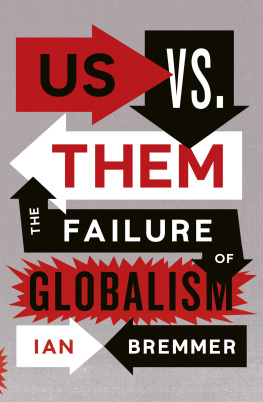Ian Bremmer - Us vs. Them: The Failure of Globalism
Here you can read online Ian Bremmer - Us vs. Them: The Failure of Globalism full text of the book (entire story) in english for free. Download pdf and epub, get meaning, cover and reviews about this ebook. year: 2018, publisher: Portfolio, genre: Politics. Description of the work, (preface) as well as reviews are available. Best literature library LitArk.com created for fans of good reading and offers a wide selection of genres:
Romance novel
Science fiction
Adventure
Detective
Science
History
Home and family
Prose
Art
Politics
Computer
Non-fiction
Religion
Business
Children
Humor
Choose a favorite category and find really read worthwhile books. Enjoy immersion in the world of imagination, feel the emotions of the characters or learn something new for yourself, make an fascinating discovery.
- Book:Us vs. Them: The Failure of Globalism
- Author:
- Publisher:Portfolio
- Genre:
- Year:2018
- Rating:5 / 5
- Favourites:Add to favourites
- Your mark:
Us vs. Them: The Failure of Globalism: summary, description and annotation
We offer to read an annotation, description, summary or preface (depends on what the author of the book "Us vs. Them: The Failure of Globalism" wrote himself). If you haven't found the necessary information about the book — write in the comments, we will try to find it.
Those who championed globalization once promised a world of winners, one in which free trade would lift all the worlds boats, and extremes of left and right would give way to universally embraced liberal values. The past few years have shattered this fantasy, as those whove paid the price for globalisms gains have turned to populist and nationalist politicians to express fury at the political, media, and corporate elites they blame for their losses.
The United States elected an anti-immigration, protectionist president who promised to put America first and turned a cold eye on alliances and treaties. Across Europe, anti-establishment political parties made gains not seen in decades. The United Kingdom voted to leave the European Union.
And as Ian Bremmer shows in this eye-opening book, populism is still spreading. Globalism creates plenty of both winners and losers, and those whove missed out want to set things right. Theyve seen their futures made obsolete. They hear new voices and see new faces all about them. They feel their cultures shift. They dont trust what they read. Theyve begun to understand the world as a battle for the future that pits us vs. them.
Bremmer points to the next wave of global populism, one that hits emerging nations before they have fully emerged. As in Europe and America, citizens want security and prosperity, and theyre becoming increasingly frustrated with governments that arent capable of providing them. To protect themselves, many government will build walls, both digital and physical. For instance...
* In Brazil and other fast-developing countries, civilians riot when higher expectations for better government arent being met--the downside of their own success in lifting millions from poverty.
* In Mexico, South Africa, Turkey, Indonesia, Egypt and other emerging states, frustration with government is on the rise and political battle lines are being drawn.
* In China, where awareness of inequality is on the rise, the state is building a system to use the data that citizens generate to contain future demand for change
* In India, the tools now used to provide essential services for people whove never had them can one day be used to tighten the ruling partys grip on power.
When human beings feel threatened, we identify the danger and look for allies. We use the enemy, real or imagined, to rally friends to our side. This book is about the ways in which people will define these threats as fights for survival. Its about the walls governments will build to protect insiders from outsiders and the state from its people.
And its about what we can do about it.
Ian Bremmer: author's other books
Who wrote Us vs. Them: The Failure of Globalism? Find out the surname, the name of the author of the book and a list of all author's works by series.


